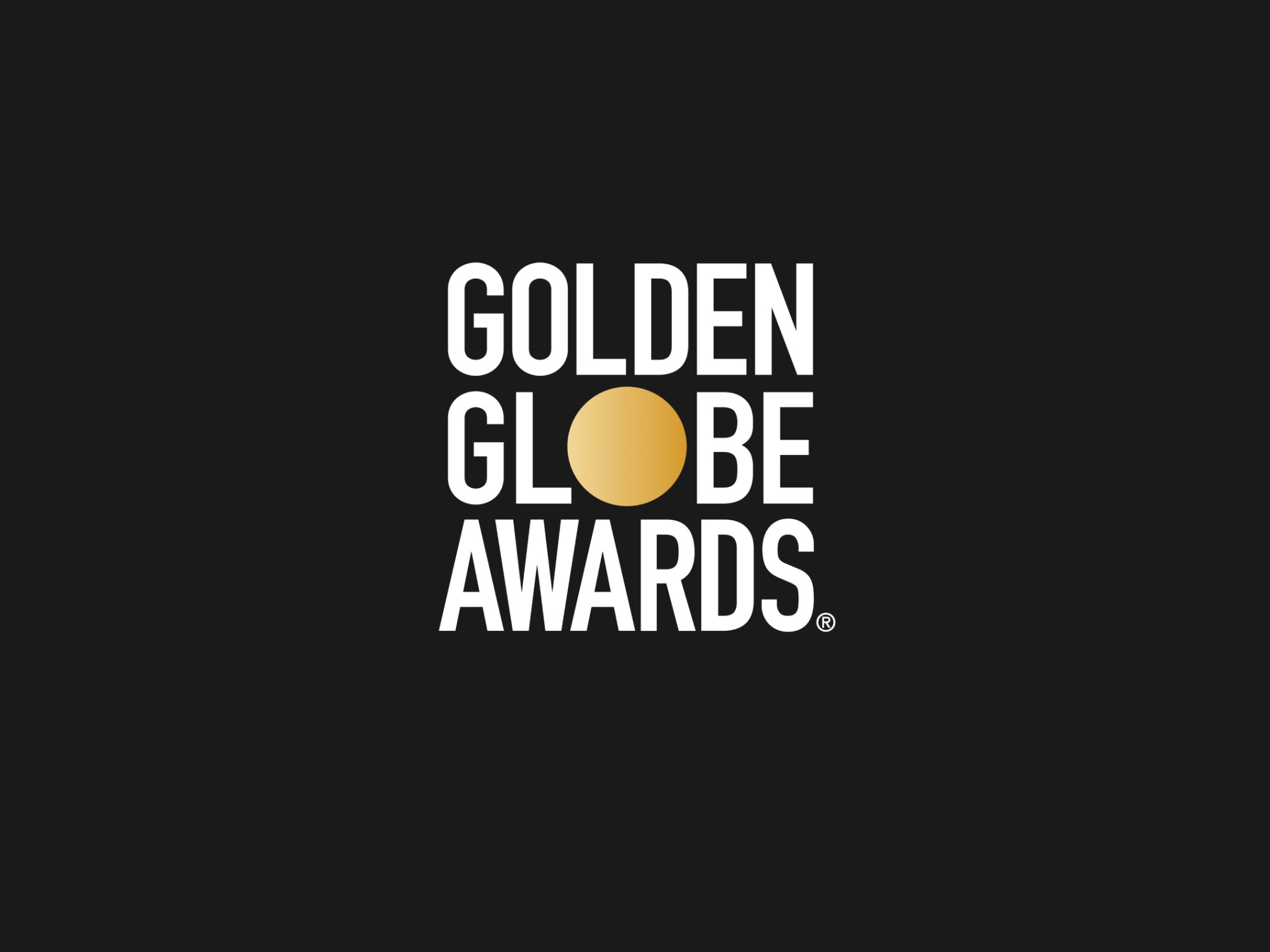
- HFPA
JERRY WEINTRAUB talks to Philip Berk about his storied career
By Philip Berk – photos by Armando Gallo
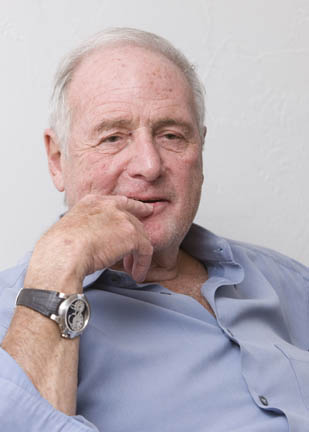
He managed Elvis and Sinatra. He produced films such as Cruising directed by William Friedkin, All Night Long with Barbra Streisand, Nashville directed by Robert Altman, Diner directed by Barry Levinson, and the Oceans films directed by Steven Soderbergh. People assume that Hollywood moguls are only interested in money, but according to Orson Welles, what they really want is to win awards. So does Welles describe you?
I loved Orson Welles, he was a friend of mine. He was a brilliant filmmaker but that doesn’t mean he knows about producers! I want to make great films, films that interest me. And then if I can make money with them on top of that, it’s great. I wouldn’t have been around 53 years had I not made money. You started out being more idealistic, but once you made Oh God! you became a producer of blockbuster movies. Do you think you changed your emphasis from that point on?
No. Oh God! was a character piece and Nashville was certainly a character piece and Cruising was a character piece, Diner was a character piece, even the Oceans trilogy were character pieces. Even though they were blockbusters, those movies were character pieces. We did $400 million on the last one. I never change my emphasis. I always looked for pictures that interested me. Things I wanted to go see.
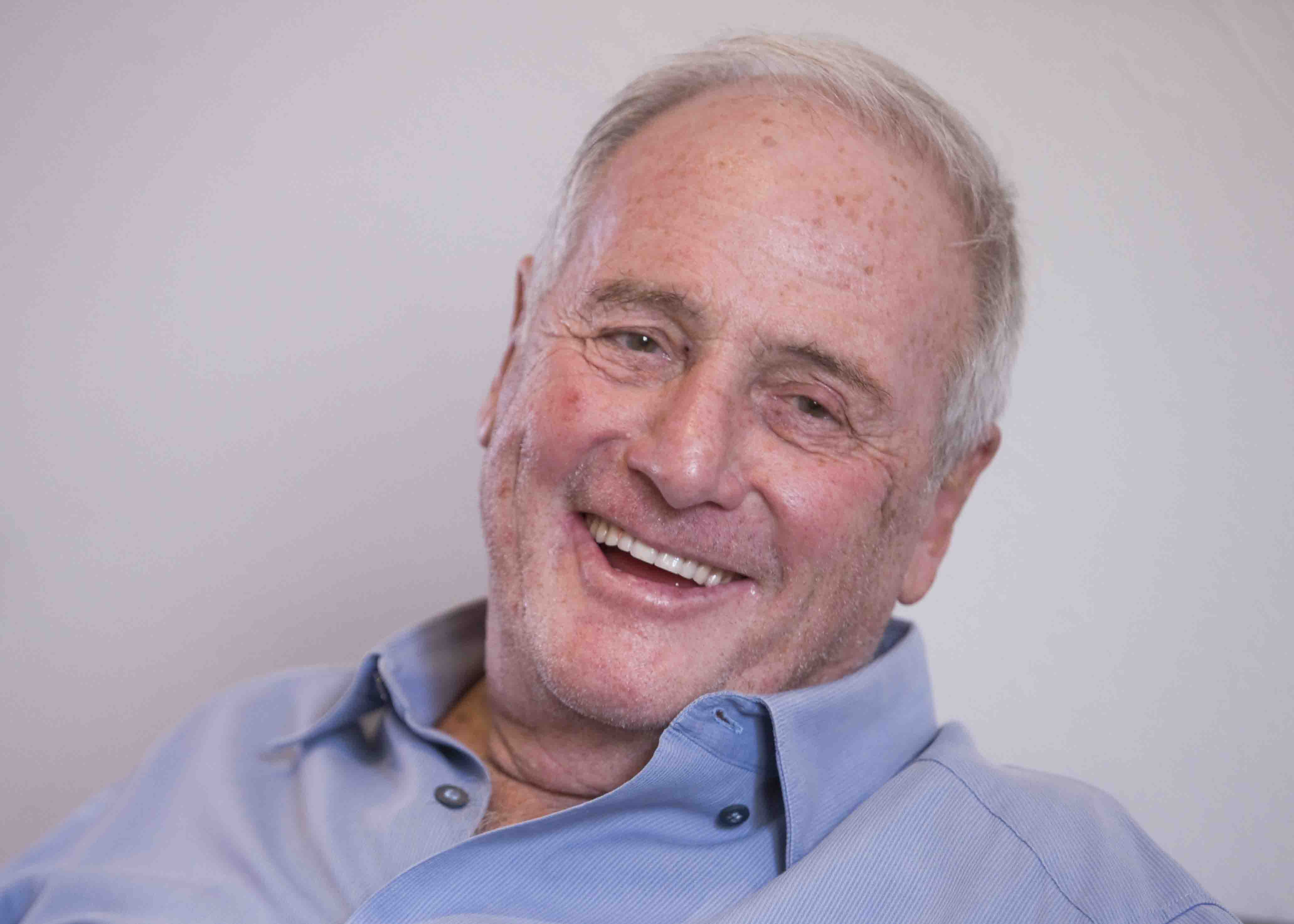
Can I assume your success is based on integrity? You’re loved and respected by people like Soderbergh, Clooney, Pitt, obviously you have been dealing with them with total honesty and integrity.
For me because I can’t remember lies, it’s a very hard job. I can’t remember them. But yes, I’m a very loyal guy. If you look at my career and the people I work with, over and over again, so we must have a good relationship. I deal with everyone as an equal. When I deal with them I feel like I’m dealing with myself. I’m very careful.
Nashville and Diner were both nominated for Golden Globes. Do you have any specific memories of those two evenings? I know you didn’t win but did you have fun?
The Golden Globes are a lot of fun. And from when I started until today, they have come a long huge way and they are a very important precursor of the Oscars. They come right before the Oscars and I think it changes a lot of people’s minds and I think it has a lot to do with who they vote for. I think they’ve gained a certain importance over the years. Nashville had nine nominations that year and walked away with none. That was a very tough year three great films in competition. Any specific memory of that?
I remember that we didn’t win. But truly, that has never been that important to me to win an award. I have a lot of awards, and I remember Colonel Tom Parker who was Elvis Presley’s manager gave me some advice one day. He said to me, “Let me tell you something,” he said, “Do good work because you’re a smart guy and you’re very creative, and you do things that other people don’t do, and you do events. Do your events but don’t forget your reward is at the box office, it’s not in somebody’s office, it’s when the box office is full and there’s money in there, you can pay the artists and you can pay everybody and do the next event.” Have you had any huge disappointments?
Yes. My favorite film that I ever made, a film that you never heard of, called 9/30/55.
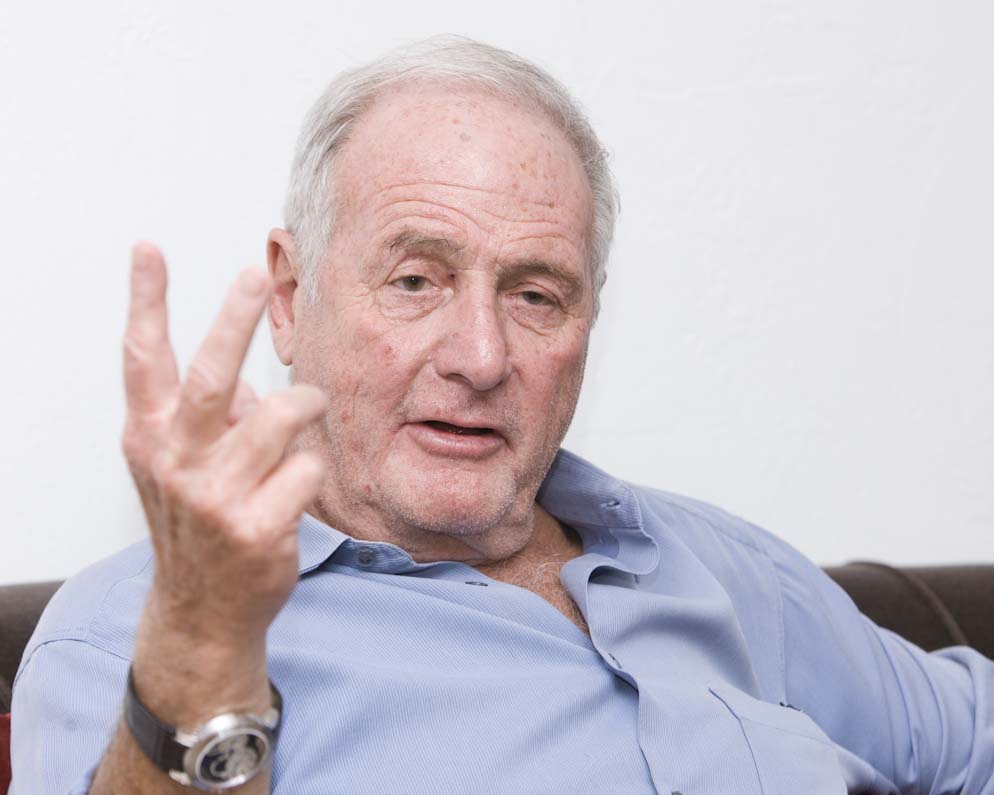
That’s the one where Gordon Willis was the cinematographer?
Gordy was a great cinematographer and the problem I had with Gordy Wilson on that film was that Gordy shot a scene, the first scene we shot was a séance, where they were trying to contact James Dean, and when I saw the rushes, it was black, you couldn’t see a damn thing- Gordon’s trademark.
You could barely see a candle in the room, and I went to Gordy and I said “Gordy, what the hell are you doing? I can’t see anything, this is not radio, this is movies, I got to see the picture.” He said, “Jerry, this is going to work, I’m telling you this is going to work, leave it alone please, don’t make me reshoot this.” I said, “You’ve got to reshoot a little bit, I’ve got to see that the kids are in the room.” He said “Ok, ok, I’ll shoot a little bit.” I said “Ok fine.” And it was great. Any good memories of Elvis?
Elvis was a very, very handsome man. I don’t know who in Hollywood was better looking than him, including Valentino and Tyrone Power. And he was a great guy, he had a wonderful smile, he was a nice man. Cared about his mother, cared about his father, he cared about family. And he wasn’t this crazy guy that everybody — I mean he did get caught up in a lot of nonsense as his career progressed, because of the temptations; and because he was so big he couldn’t go out, he was cloistered. So he got caught up in a lot of nonsense, but he was a great guy. I remember him that way, I remember him as a friend, and I remember him always trying to help me and always wanting me to smile. What about his dark side?
He had a dark side, sure, and it came out with all this stuff that he did in his later years as a performer because there was too much going on around him. You can’t live the kind of life Elvis lived be as cloistered as he was, and live a normal life. It’s not normal. It’s not normal to have to go to the movies at 3 o’ clock in the morning with everybody out of the theatre to see a film. That’s how we took him to the movies in Memphis. He couldn’t go at 6 o’ clock. And he couldn’t go at 8 o’ clock. And he couldn’t go to the hamburger place and get a hamburger. And then go to the movies and get some popcorn, sit down and watch a film. We had to buy the theatre out and take him at 3 o’ clock in the morning. What about Frank Sinatra?
Frank was different. We were together for 30-something years. The thing about Frank was that Frank was my idol, I loved Frank. And I could listen to him day and night and still do. He’s one of the only artists that I listen to today musically. And we had great times together, we travelled together and we lived together and we had a very, very close personal relationship. I miss him a lot. A lot. The only Steven Soderbergh movies that make any money are Jerry Weintraub productions. A lot of people seem to think that he doesn’t have the magic touch unless he’s making a movie for you. What is your close relationship based on?
I idolize him. I think he’s the best filmmaker working today and it’s as simple as that. And he and I have a shorthand. And we never raise our voices to each other and we never have disagreements, and if there’s something I don’t like, we sit down and discuss it, and if there’s something he doesn’t like, we sit down and discuss it. And when we leave the room we both are happy, and it’s because I idolize the guy. I think the guy knows what he’s doing, I don’t think there’s a screw missing anywhere. I think he’s that good. Is there going to be an Ocean’s Fourteen?
I hope not. I shouldn’t say I hope not. Because I can only say this about Ocean’s Fourteen. The same as I said about Karate Kid. And I was wrong about Karate Kid. So I say this, as we are sitting here right now, none of us have any interest in making Ocean’s Fourteen. None of the actors, and not Soderbergh and not myself. That’s right now, today. I have no interest in that, I have no story, I have no idea. It’s a lot of work to put those films together, and I don’t really want to go do that right now. But I don’t know what’s going to happen in 2 years or 3 years or 5 years. When Will Smith came to me last year or 2 years ago and said to me, I want to remake Karate Kid with my son, I said oh please come on, leave it alone it’s part of my legacy, I don’t want to screw around with it, I’m seventy-something years old, I really don’t need to mess around with my gems. And he said to me you’re wrong. I’m right and you’re wrong. And I said, I don’t agree with you. He said, no I’m telling you I know what I’m talking about. He brought me his producing partners and they all talked to me and talked to me and talked to me, and wouldn’t leave me alone and would not let it go, and I finally said to him one day, ok why don’t you get a script and then we’ll look at the script and we’ll go from there. And he did, and we made it, and he was right. I was wrong. And Jaden Smith is a big, big star. Big star, the kid’s great. And they have a machine out there, the Smith family. It’s got to be the best showbiz machine ever put– it’s better than the Jacksons. And I think that that proved to me I can’t say never again, no more this, no more that. You can’t say that. Because you just don’t know. You just don’t know. Liberace?
I’m gonna do Liberace. You didn’t represent him.
No. He was a friend, just a friend. And I’m going to do the movie. And I’m going to do the movie for four reasons. Because Richard LaGravenese wrote it. Because Steven Soderbergh is going to direct it, Michael Douglas is going to play Liberace, and the 4th reason is that Matt Damon is going to play the boyfriend. Where does his Mother come in?
She doesn’t. But the fact is that Liberace led a tortured life because he couldn’t come out of the closet. It’s not like Elton John and David Furnish. He was in the closet and he couldn’t say he was a homosexual because he would have lost his audience. His audience was all blue-haired ladies in Las Vegas, he couldn’t do that. Therefore he was a tortured man, he led two lives. And I’m going to tell the story of both lives.
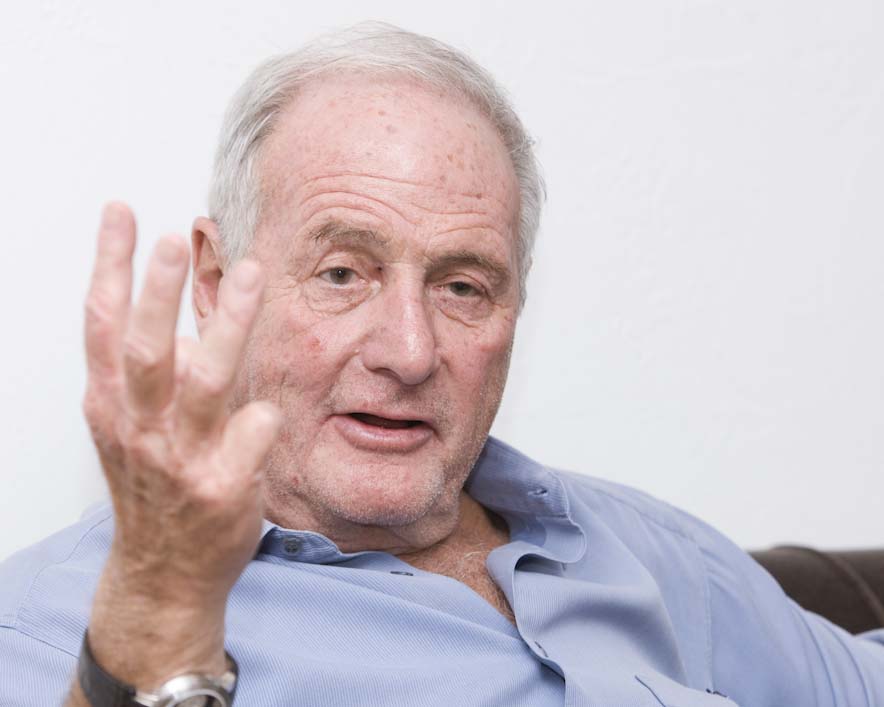
Talk about Las Vegas in the old days, before it became Disneyland, when the gangsters were there?
Yeah. I knew them all. So what was Las Vegas like back then?
It was much different. You knew all the owners of each place. When you walked in the door, the places were small. It wasn’t these big monolithic– it wasn’t these big things that Steve’s [Wynn] built in Vegas there, they were like motels. It was a different atmosphere. You went to Las Vegas and you knew everybody, and everybody knew everybody else. It was a small town. I mean, there’s pictures in my movie, when I was a kid and went to Vegas for the first time, I was 9 years old when I came here for the first time, to Hollywood, and there’s pictures of that, and you see Vegas and you see there were three hotels! And were all the owners connected? Were they all mobsters?
Yeah, each city had its own hotel. In other words, New York had a hotel. Florida had a hotel, Chicago had a hotel, Detroit had a hotel. And the gangsters from those cities owned hotels.